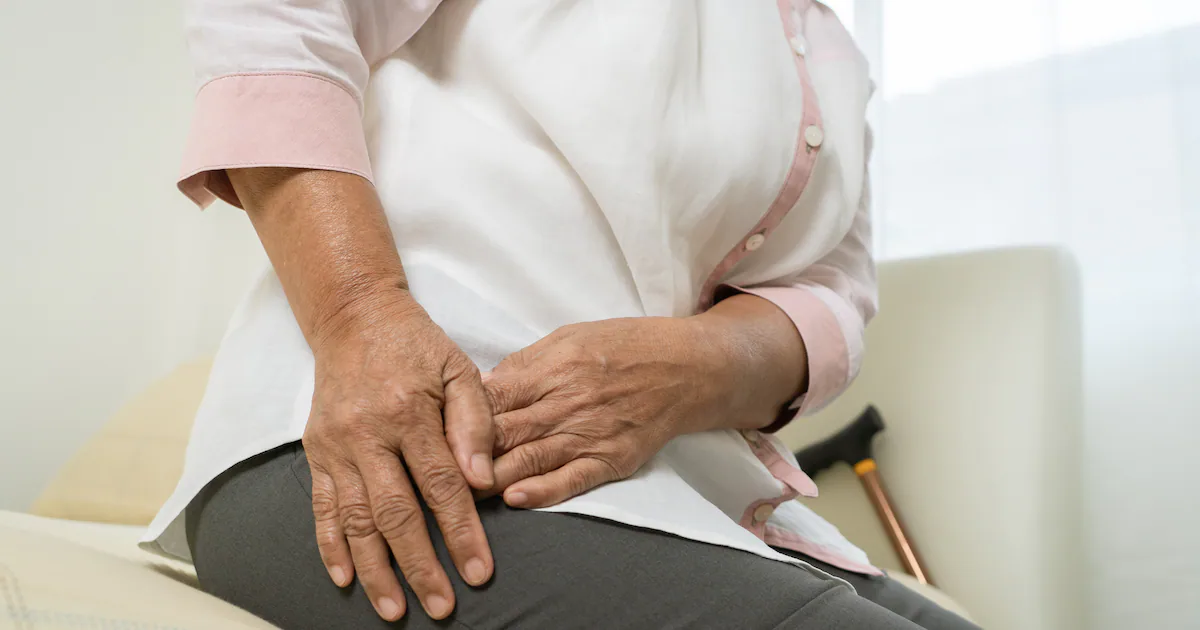Copyright The Atlanta Journal-Constitution

Types of stressors Common causes of hip pain include arthritis, bursitis, tendinitis, age-related wear-and-tear, and injury. However, the source of discomfort isn’t always located in the hip. “Sometimes we can have pain that comes from other parts of the body, such as the lower back, pelvis, knee, ankle, or foot,” Dr. Doneisha Simon, an Atlanta chiropractor, told The Atlanta Journal-Constitution. This kind of pain is known as a physical stressor, and it can contribute to hip discomfort. Simon added that issues like spinal misalignment, poor posture, or even toxins in the kidneys can also lead to worsening pain. Similarly, emotional stressors can play a role in physical pain. Just as having a positive mindset can foster better physical health, negative emotions can adversely affect our well-being. Feelings of worry, loss, or depression significantly impact physical health. This is especially true when it comes to areas of our body like the hips, where stress and emotional tension can manifest physically. Just as having a positive mindset can foster better physical health, negative emotions can adversely affect our well-being. Feelings of worry, loss, or depression significantly impact physical health. This is especially true when it comes to areas of our body like the hips, where stress and emotional tension can manifest physically. The hip joint plays a vital role in supporting body weight, stabilizing the core, and enabling everyday movement. But when stress or unresolved trauma lingers in the body, it can manifest tightness or even chronic pain. One key player in this process is the psoas muscle — a deep-seated muscle that connects the spine to the legs. When we’re stressed, this muscle can tighten, leading to lingering tension in the hip area. This can cause pain, affect our posture, and limit mobility. Symptoms and finding relief Although common, feeling overwhelmed is a telltale sign of stress. Tight muscles, clinched teeth, and exhaustion are also indicators. According to the American Psychological Association (APA), over 77% of U.S. adults experience physical manifestations of their stress. This statistic shows how overlooking physical pain, tension, or distress may cause one not to notice they’re experiencing chronic or unhealthy stress. To find relief, Simon recommends starting with self-reflection. “Evaluate when you began feeling hip pain. Was it following an injury, or do you lead a sedentary lifestyle?” She then suggests standing up and moving every two to three hours for five to 10 minutes, incorporating daily stretches, and walking three to four days a week. “If walking is difficult, consider aquatic therapy,” she said. Meditation can also effectively alleviate stress and reduce pain. Try finding a quiet space, ideally in nature, to calm the mind and listen to your body. Meditation can also effectively alleviate stress and reduce pain. Try finding a quiet space, ideally in nature, to calm the mind and listen to your body. In yoga classes, instructors often refer to poses like pigeon, butterfly, happy baby, or warrior II as “hip-opening” poses, highlighting the need to “unlock” the hips. “If we don’t do something to release these emotions, they remain in the body,” said Simon. Numerous yoga poses can target the four primary directions of hip movement, with modifications available for all experience levels.



